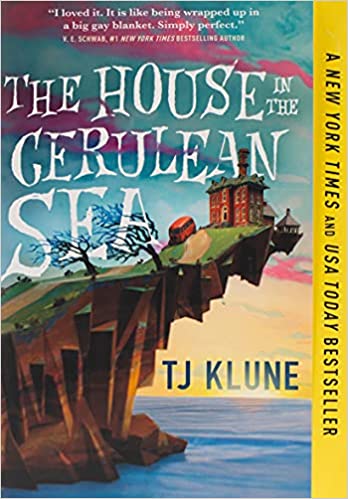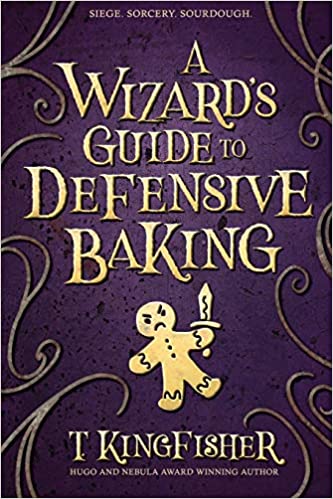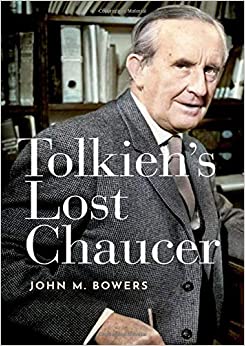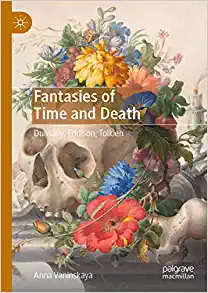Acceptance Remarks — 2021
2021 Mythopoeic Fantasy Award for Adult Literature
TJ Klune, The House in the Cerulean Sea
I am so grateful for this honor, and looking at the other finalists in the category, I can’t help but wonder if there’s been some kind of mistake [laughs] given the level of talent my book is listed with.
The House in the Cerulean Sea is at its heart a story about kindness. When I wrote this book back in 2017, I did so because I hoped to remind people of how important it is to live life with purpose, and to lift up those whose voices are often muffled by shouts of anger and outrage. The novel ended up taking on a life of its own, but I never forgot why I started writing it in the first place. And the fact that the novel is being honored with this wonderful award is yet again another reminder that queer stories matter.
Thank you to the Mythopoeic Society for this amazing recognition, but I would be remiss if I didn’t thank those who worked behind the scenes. My agent, Deidre Knight, was one of the first people who believed in my work, and she got it into the hands of the person who would become my editor, Ali Fisher, who saw the potential. Everyone at Macmillan and Tor has proven time and time again that stories from marginalized voices are just as important, especially in the science fiction and fantasy genre. I adore my publisher and will work with them for as long as they’ll have me.
Thank you again for this award. I can't wait to display it proudly.
(Watch TJ Klune’s live acceptance speech here.)

2021 Mythopoeic Fantasy Award for Children’s Literature
T. Kingfisher, A Wizard’s Guide to Defensive Baking
Hi, everybody, this is Ursula Vernon a.k.a. T.Kingfisher, coming to you from my garden, and I have just found out I have won a Mythopoeic Award for A Wizard’s Guide to Defensive Baking and Oh My God, that’s wonderful! I am flattered, I am honored, I ... wish I was there in person (no really, I really wish I was there in person) ... I love my garden but I’ve been in here for a really long time now, and I remember Mythcon with great fondness — so does my husband — we often talk about how we absolutely gotta go back — so I wish I was there to pick this up in person.
And I should probably say something very inspiring and related to writing or perhaps the Inklings now, but [burbles] (oh my god i won a mythopoeic award that’s so cool!).
About all I can say is that the lesson from Wizard’s Guide is that books are frequently not dead, they are waiting for their chance. I wrote that book in 2012, and due to various publishing vagaries, it never went anywhere for — let's not do the math — a lot, a lot of years. And then it just happened to land at the exact moment where we were all thinking a lot about heroism, and how authority had failed us — and also about sourdough. That was not something I could have ever predicted when I wrote it. Sometimes the book is just waiting for its chance to hit when it will matter.
Well [burbles] (i get a little lion statue *squee*) Thank you everyone, I hope you have a fabulous weekend and I am very sorry that I will not be able to see the collaborative Beowulf readings, which were a delight.
Thank you!
(Ursula Vernon's delightfully delivered remarks are best viewed at
this YouTube link.)

2021 Mythopoeic Scholarship Award for Inklings Studies
John M. Bowers, Tolkien’s Lost Chaucer
Receipt of the Mythopoeic Scholarship Award for Inkling Studies comes as a great honor but also as a great surprise. Andoni Cossio had emailed from Spain to alert me that Tolkien’s Lost Chaucer was listed as a finalist, but when I saw online the other books in contention, all of them by super-stars with long and distinguished records of contributions in the field, I put the prospect of winning completely out of mind.
I had made the acquaintance of John Garth when I first went to Oxford in 2013 to investigate the archives of Oxford University Press, and he has remained a constant, reliable, and generous resource ever since. John Rateliff is one of those Tolkien scholars that I learned quickly to consult for unrivaled expertise in books like The History of “The Hobbit”. Oronzo Cilli’s amazingly useful Tolkien’s Library is one of my newest acquisitions, but one that now remains always within easy reach on my desk. And Catherine McIlwaine’s Tolkien: Maker of Middle-earth is the result of her expertly curated exhibition that was a celebration on both sides of the Atlantic, in Oxford and again in New York. All researchers are in her debt as Tolkien archivist at the Bodleian Library, and Tolkien’s Lost Chaucer could not have been written without her quick, unstinting assistance with lists of manuscripts, photocopies, and scans of these materials for my remote work back home in Las Vegas. That help has increased heroically during covid restrictions, with permission from Tolkien Estate’s lawyer Cathleen Blackburn, as work has advanced remotely on my follow-up volume Tolkien on Chaucer, 1913-1959, now under contract with Oxford University Press.
My expressions of gratitude would not be complete if I did not include Tom Shippey as the scholarly pathfinder who showed the central importance of Tolkien’s medieval sources for his fantasy creations — and who was quick to announce my discovery of the Clarendon Chaucer materials in his book-chapter “Tolkien as Editor”. The OED’s Peter Gilliver was a delightful guide and colleague when I started my archival research at OUP, and remains so.
My final thanks should have come first — to Merton College, Oxford — where Professor Tolkien was very much
a living memory when I was a Rhodes Scholar there in the mid-1970s — and where I was granted two accommodations
as a Visiting Scholar in the 2010s and look forward to a third welcome when coronavirus restrictions safely allow.

2021 Mythopoeic Award for Myth and Fantasy Studies
Anna Vaninskaya, Fantasies of Time and Death: Dunsany, Eddison, Tolkien
It is a real honour to receive the Mythopoeic Scholarship Award for Myth and Fantasy Studies. I first heard of the Mythopoeic Society when I was a teenager, and in a sense my book had its genesis then, long before I knew that writing scholarly monographs would become a part of my job. But Fantasies of Time and Death is not just another monograph for me; it is an attempt to give an analytic and reasoned form to the visceral response that a certain kind of fantasy writing has elicited in me since childhood. I refer to the kind of fantasy that chooses to dwell with poetic poignancy on something that we are all intermittently aware of but prefer to forget: the fleeting nature of life. When I first read Tolkien, and some years later Dunsany, Eddison and other early fantasists, I was transfixed by the sharpness of their longing for the things that pass. And I fell in love with the artistic forms they gave to our futile attempts to preserve what time would sweep away.
I had originally wanted to write a huge book, encompassing not just these three authors, but many others set against a
literary and philosophical backdrop spanning centuries, because fantasy — to quote my favourite Victorian poet —
is ‘the heir of all the ages’ of literature. Of course, that projected magnum opus shrank in the course of writing
to a handful of case studies, a mere leaf from the magnificent Tree that I imagined; but I hope that even in this form it has
managed to express something of my admiration for the sad and beautiful worlds of early fantasy. I am eternally grateful to
these writers for the moving myths that they created and to the Mythopoeic Society for selecting my book about them to join
such an amazing company of past award recipients. Thank you!
(Watch Anna Vaninskaya’s live acceptance speech here.)
